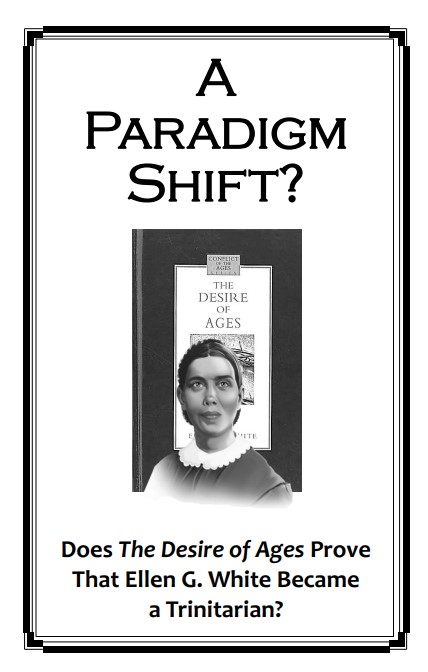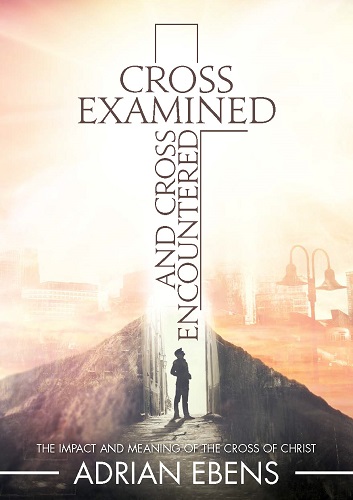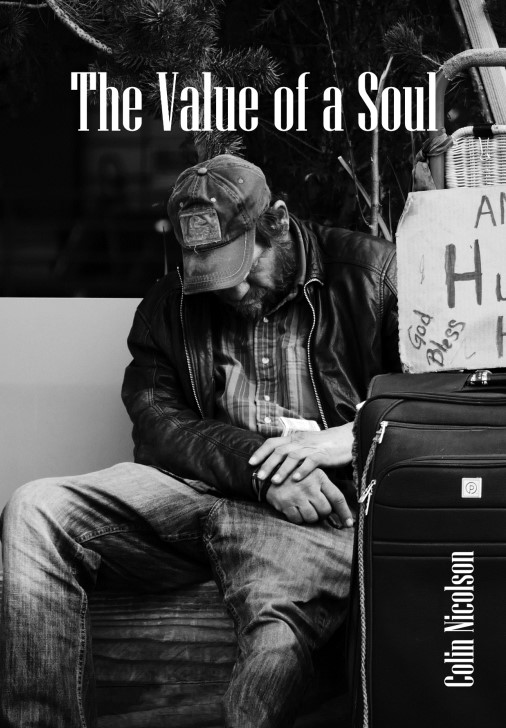Gospel of Right or Privilege and Women's Ordination
Whenever I have been gripped by a story of great struggle, courage and victory in the face of the forces of evil I have naturally identified myself with the central character of the story. As a man who wrestles with sin and lives within the knowledge of the great controversy, this story is natural for me as it is or most people. So when I come to the story of Jesus and I see the struggle and conquest He engages through the pages of Scripture and as I behold loving patience and wisdom in the face of the cruelty of Satan and his forces, my heart is drawn to Him. I identify with His struggle and I am comforted by the knowledge of His coming total victory over sin. I look forward to standing on the sea of glass with Him and rejoice with Him in His victory over His foes and mine.
This brings us to the central question of the identity of Jesus. What is the story of the Bible that I am identifying with? The story of Jesus that I was taught within my church was that Jesus held His position as God by divine right. Since He possessed all the qualities of divinity inherently, he therefore was naturally entitled to a position of equality with God the Father. As the story was explained to me, Lucifer tried to deny Christ what was naturally His, Satan tried to take away from Christ his title of God. With this understanding of Christ, the central story that underpins the Great Controversy is the conquest of divine right, It is God the Son demonstrating His Godhood before the universe and dispelling the lies of Satan concerning Him. The coming of Jesus to this earth was a demonstration of His love, His patience, His power, His wisdom and His self-sacrifice in order to demonstrate and then lay down His Divinity. I repeat that this story is one of the struggle for recognition for one to be seen as equal with God.
In the person of the begotten Son, I have discovered a very different Jesus. The Son of God holds His position by divine privilege. All things were given to the Son by His Father. He did not seek equality with His Father but rather took upon Himself the form of a servant in order to reveal the love of His Father. The person of Jesus is one who is filled with a deep sense of joy at being given all things. The person of Jesus does nothing of Himself but trusts His Father to give Him all He needs and to protect and vindicate His name. The Great controversy unfolds as Satan seeking to deny the relationship that Jesus has to the Father, Satan seeks to take from Christ His Sonship and Inheritance. The struggle of Christ here is one who rests in His Father’s love while He clings to His Sonship and inheritance. In the gospel context, this backdrop provides a chorus to the theme of our resting in our Father’s love and clinging to our sonship and inheritance through Christ. Christ is the Gospel, the Way, the truth and the life.
These two very different stories of Jesus yield very different understandings of the gospel. The Jesus who is engaged in a battle with Satan to reveal His identity of equality with God translates into efforts of giving recognition and equality by human right. The gospel becomes cloaked in a mantle of social justice; of Women’s rights to ordination; of a person’s right to education and a job; of the rights of the planet to thrive. Do we see the church being swept with social justice issues? Are not these simply echoes of the central narrative understood in the person of Jesus? In this context is not Women’s ordination then an issue of the gospel of right to equality? As the Jesus who battles for equality plays out in the hearts and lives of those who serve him, is not this question of women’s ordination an echo of the struggle of Christ for equality? The gospel of the Jesus who rules by divine right from his inherent resources is the God who fuels the fires of social justice and equality by right, equality for education, equality by position.
In contrast, the Son of God who receives all things creates a theme in the gospel of immense privilege and joy and trust that our Father will protect and save us. This is the gospel of Scripture, the gospel of immense privilege, the gospel of an incredible gift by the Father in giving His Son. This giving by the Father is stamped and sealed in the story of Jesus who was given all things. Jesus received all things, but He took in order to give. Of course when one lives with such immense privilege, he will value humanity, education and the planet as gifts from the Father to care for, but it is a love born of privilege not right.
As long as our Church presents the story of Jesus as one who is God by His divine right, then the questions of social justice and equality will naturally play out in our lives as we emulate the struggle of a Jesus seeking equality and recognition. I am asking my Church to come back to the Son who rules by Divine privilege, who was given all things in order to give (See Desire of Ages Page 21). A Son who does not seek equality because He knows that God is His Father and that the Father will ensure all things are done decently and in order. This Jesus does not seek sameness (platonic eros) with His Father but simply clings to the Word of His Father that He is His Beloved Son (biblical agape). His inheritance from His Father is the clear distinguisher between them both. So too, Eve’s inheritance from Adam, her very name taken from man is the blessed distinguisher between man and woman, both human, yet distinct by the inheritance and so with Father and Son, both God yet distinct by the inheritance of the Son from His Father. The inheritance removes all discussion of the striving for equality and the desire for sameness, all this is swept away by the joy of privilege.
Six years ago from my vantage point of a minister of the Seventh-day Adventist Church I saw the issues that now threaten the unity of the church over Women’s ordination relating to the issues of church and family governance. The writing of my book Return of Elijah was primarily about Church governance though most understand it to be simply against the Trinity. The God we worship defines methods of human authority and how they are executed. The narrative that forces itself upon you from a co-equal Trinity based on inherent qualities is one of social and legal justice. The Trinity of Adventism logically demands the social justice of Women’s ordination, it must be central to its gospel theme. The conservative position of male only ordination coupled with the co-equal trinity is logically inconsistent. The Trinity’s spiritualism of terms Father and Son should naturally allow spiritualising the terms “Husband of one wife” for an elder or pastor. Either we go back to the literal Father and Son and embrace a theology of inheritance and privilege or we ordain women as spiritual “husbands of one wife” and co-equal leaders by divine example leading to human right. That is the logical choice.
The CUC and PUC union conferences are only carrying out the legitimate struggle of the Jesus found in the Trinity, the struggle for equality and recognition. A struggle that is worth the sacrifice of unity because this struggle is seen as a gospel struggle not mere human desire and opinion. It is the struggle of the Jesus they see in Adventism. I submit to you the book Return of Elijah if you have not read it with a view of addressing Women’s ordination. For me that was the most pressing issue. The issue of Women’s ordination will not subside because it is linked to the fundamental issues of which Jesus you serve and what Gospel you believe. Beyond this I invite you to read the book Life Matters (contact us if you can’t use Amazon.com) to provide a systematic view of how an understanding of authority and blessing affect core Adventist teachings. For the implications for family church and community flowing out of an understanding of a real Father and Son authority structure see the book Divine Pattern.
Let us pray for our church that we will regain the great controversy story that carries the theme of privilege rather than right; of inheritance rather inherency; of relationship rather than position.
One final observation. Whose story in the great controversy is the one of seeking equality through a struggle for recognition? Is this not the story of Satan himself? Is not this push for woman’s ordination simply a cameo of the central theme of Satan’s view of the great controversy – the desire for recognition and equality? The Jesus I serve has no such struggle, He rests calmly in His inheritance. His struggle is one of His true relationship to God as His Father, protector and provider.
Choose you this day which Jesus underpins your great controversy story. Is it the Jesus who rules by divine right or by divine privilege?
Galatians 1:8-9 But though we, or an angel from heaven, preach any other gospel unto you than that which we have preached unto you, let him be accursed. (9) As we said before, so say I now again, If any man preach any other gospel unto you than that ye have received, let him be accursed.
John 17:3 And this is life eternal, that they might know thee the only true God, and Jesus Christ, whom thou hast sent.
|
Son of God - Gospel of Privilege |
God the Son - Gospel of Right |
|
Inherited all power and authority from His Father. John 5:26, Matt 28:18; John 3:35 |
Has all power and authority inherently and received it from no one. |
|
Distinct from the Father by Inheritance – distinct in being which makes title significant. Heb 1:1-4 |
Same as the Father by inherent power – distinct only in title which makes title irrelevant. |
|
Rules by Divine Privilege – Granted the Right. Phil 2:11, Rev 3:20. |
Rules by Divine Right – assumes the privilege. |
|
Rests in His Sonship relation to His Father – was made equal by divine privilege. John 5:18 |
Asserts equality to the Father – assumes equality by divine right. |
|
Does what His Father commands. Approaches Father by Spirit of intercession recognising His Father as the great source of all who gives from His heart of love. (agape - makes equal) John 5:19,30. Ps 36:9, GC 479, DA 21. |
Collaborates with Father and Spirit (as seperate being) to decide outcomes. Approaches Father by Spirit of self-assurance leading to mutual respect and love (platonic eros - seeks equal). |
|
Sets example to humanity of equality by an inheritance relationship – The words Father and Son mean something relationally. Matt 3:17 |
Sets example to humanity of equality by power (omnipotence), knowledge (omniscience) and age (sempiternity) - The words Father and Son are only functional titles with no connection to their actual being which is therefore a mystery. |
|
Sets example to humanity of one who receives from Supreme authority in order to give. John 5:19-22 |
Sets example to humanity of one who seeks to demonstrate equality by revealing inherent qualities. |
|
Sets example of trusting the Father to provide whatever position is given and rests content in that position without desiring exaltation. Phil 2:7-9, 1 Pet 5:6 |
Sets example of one who seeks to be recognized in the highest possible position. |
|
Lays foundation for Male headship in the home and the church. 1 Cor 11:3, Tit 2:3-5 |
Lays foundation for the most capable to lead in the home and the church. |





